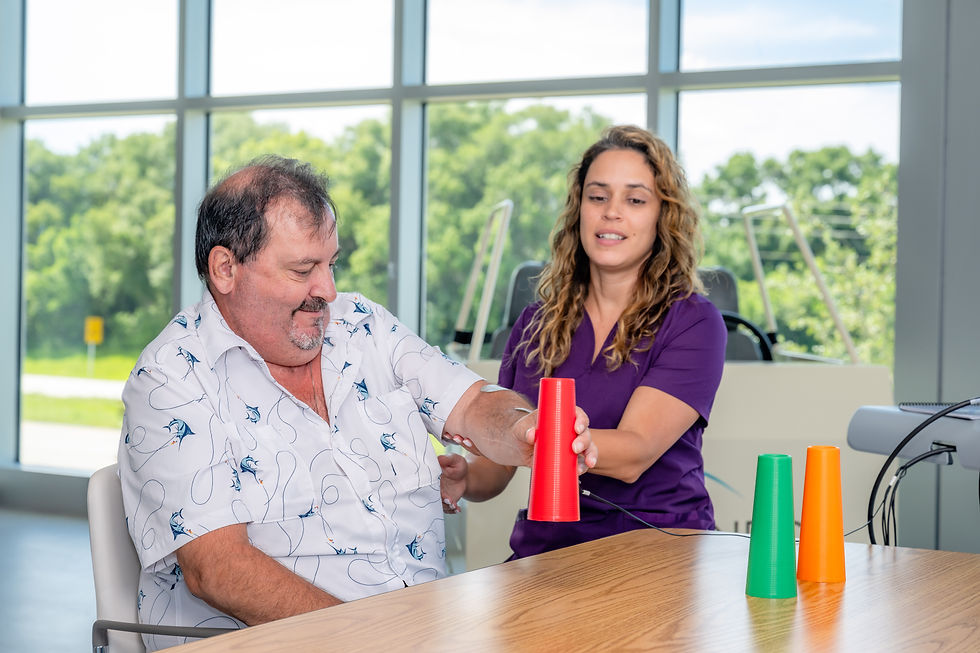Diagnosed With Diabetes? Here’s How to Navigate Your Health.
- Tulsa Rehab Hospital
- Nov 29, 2023
- 3 min read
Updated: Sep 29

No matter your age, receiving a diabetes diagnosis can be difficult to process. A new diagnosis may cause you to feel overwhelmed or confused. When managing diabetes becomes a new part of your life, you will have to learn to navigate the changes – physically, mentally and emotionally. Whether it’s making different food choices, trying to be more physically active, or accepting that everything from holidays to daily life will look a little different, there are many things to consider when approaching your health holistically. Luckily, there are many online resources available to help you take control of your diabetes. To get started, here are four things to consider if you’ve recently been diagnosed:
Diet: Sticking to a healthy diet is a big part of managing diabetes. It doesn’t mean you have to give up your favorite foods, but it does mean balancing your diet to support your health. Start by making healthy swaps, such as choosing the low-fat versions of dairy, choosing lean meats and using natural sweeteners. Take the time to learn how to read food nutrition labels. Investigate the foods that have the biggest impact on your blood glucose levels, such as foods high in simple carbs.
Exercise: Staying active helps control your blood sugar, but you don’t have to go from sedentary to superstar overnight. Start small with daily walks around the block, and add to your activity levels over time. Try a variety of activities; there are many types of movement, and you can find one that you enjoy. Make sure to add muscle-strengthening exercises to your routine, too. Before you get started, talk to your doctor to decide what level of activity is right for you.
Medical Support: Many different prescription medications help manage diabetes. These medications work in different ways to lower your blood glucose levels. Sometimes your doctor may prescribe one medication or a combination of medications. In certain cases, you may need to use insulin to help manage your diabetes. Make sure to talk to your doctor about any medications prescribed so that you can understand how to use them properly and any side effects.
Emotional Help: Sometimes tracking your blood sugar, managing your medications, planning your meals and exercising can lead to feelings of burnout. This can include feeling run down, emotionally drained or overwhelmed. Whatever you do, make sure you allow yourself the space to feel whatever emotions come your way. Reach out to family, friends, or a mental healthcare professional if you need additional help.
If you have had your mobility, strength, and balance affected following an acute episode of this debilitating disease, you may need a few days of intense medical and physical rehabilitation. We are here to help! Learn more about medical rehab on our website. Our teams of nurses and therapists address the unique needs of each patient and create an individualized comprehensive plan of care to help each person reach their goals.
Here are some apps to explore that are helpful in the day-to-day management of diabetes:
Glucose Buddy – Connects to automatic glucose meters and syncs with smartphones to provide real-time blood sugar measurements.
MyFitnessPal – Allows users to track what they eat and how often they exercise.
Tidepool – Automated insulin dosing app for people with type 1 diabetes.
mySugr – Acts like a diabetes “log book,” allowing users to log their most important diabetes-related information.
Dexcom Clarity – Compatible with Dexcom devices; provides feedback on an individual’s blood sugar levels.











